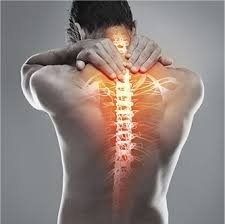Muscle pain and stiffness can disrupt daily life and limit mobility. While medications like muscle relaxants are effective, adopting a holistic approach can enhance relief and promote long-term recovery. This guide explores natural and integrative methods to ease muscle discomfort and restore flexibility.
Understanding Muscle Pain and Stiffness
Muscle pain and stiffness occur due to various reasons, including:
-
Overexertion: Intense physical activity can lead to micro-tears in muscle fibers, causing soreness and tightness.
-
Poor Posture: Incorrect posture during daily activities places undue stress on muscles, leading to discomfort.
-
Stress and Anxiety: Psychological stress can cause muscle tension, particularly in the neck, shoulders, and back.
-
Injuries and Medical Conditions: Strains, sprains, and chronic conditions like arthritis or fibromyalgia often result in muscle stiffness.
Addressing the underlying causes is essential for effective relief.
Heat and Cold Therapy
Alternating between heat and cold can significantly reduce muscle pain and stiffness:
-
Heat Therapy: Apply a heating pad or warm towel to improve blood circulation, relax muscles, and reduce stiffness.
-
Cold Therapy: Use an ice pack to reduce inflammation and numb sharp pain. This method is particularly effective for acute injuries.
Stretching and Yoga
Gentle stretching and yoga are excellent for relieving muscle tension and improving flexibility:
-
Stretching: Regular stretching helps elongate tight muscles and prevent stiffness.
-
Focus on major muscle groups, such as the hamstrings, quadriceps, and back.
-
Hold each stretch for 20-30 seconds without bouncing.
-
-
Yoga: Yoga combines stretching with mindfulness, enhancing relaxation and overall well-being.
-
Poses like Child’s Pose and Downward Dog are particularly effective for relieving back and shoulder tension.
-
Massage Therapy
Massage therapy is a proven method for alleviating muscle discomfort:
-
Deep Tissue Massage: Targets deeper layers of muscle and connective tissue to release tension and improve circulation.
-
Trigger Point Therapy: Focuses on specific points of muscle tightness to alleviate referred pain.
-
Self-Massage Tools: Foam rollers and massage balls can be used at home to target sore areas effectively.
Mind-Body Techniques
Stress management plays a critical role in reducing muscle pain and stiffness. Incorporate these mind-body practices into your routine:
-
Meditation: Regular meditation reduces stress levels, helping muscles relax.
-
Breathing Exercises: Deep, diaphragmatic breathing alleviates tension and promotes relaxation.
-
Progressive Muscle Relaxation (PMR): Alternately tensing and relaxing different muscle groups helps release built-up tension.
Nutrition and Hydration
A balanced diet and proper hydration are essential for muscle health:
-
Anti-Inflammatory Foods: Incorporate foods rich in omega-3 fatty acids, such as salmon, walnuts, and flaxseeds.
-
Magnesium-Rich Foods: Magnesium supports muscle function and prevents cramps. Include leafy greens, nuts, and seeds in your diet.
-
Stay Hydrated: Dehydration can cause muscle cramps and stiffness. Aim to drink at least 8-10 glasses of water daily.
Physical Activity and Exercise
Regular physical activity strengthens muscles and prevents stiffness:
-
Low-Impact Exercises: Activities like swimming, walking, and cycling are gentle on muscles while improving strength and flexibility.
-
Strength Training: Building muscle strength reduces the risk of future injuries.
-
Consistency: Incorporate exercise into your daily routine to maintain muscle health.
Herbal and Natural Remedies
Natural remedies can complement other treatments for muscle pain and stiffness:
-
Epsom Salt Baths: Soaking in warm water with Epsom salt relaxes muscles and reduces inflammation.
-
Essential Oils: Oils like lavender and peppermint provide relief when applied topically or used in aromatherapy.
-
Herbal Teas: Chamomile and ginger teas have anti-inflammatory properties that soothe muscle pain.
Ergonomic Adjustments
Creating an ergonomic environment at work and home prevents muscle strain:
-
Proper Chair Support: Use chairs with adequate lumbar support to maintain correct posture.
-
Adjustable Desks: Alternate between sitting and standing to reduce prolonged stress on muscles.
-
Correct Screen Height: Position computer screens at eye level to avoid neck strain.
The Role of Sleep in Recovery
Quality sleep is essential for muscle repair and recovery:
-
Establish a Sleep Routine: Go to bed and wake up at the same time every day.
-
Create a Comfortable Sleep Environment: Use supportive mattresses and pillows to maintain proper alignment.
-
Limit Stimulants: Avoid caffeine and electronics before bedtime to promote restful sleep.
Integrating Holistic Practices
Combining multiple holistic methods enhances their effectiveness:
-
Daily Routine: Incorporate stretching, hydration, and mindfulness into your daily activities.
-
Professional Guidance: Seek advice from physical therapists or holistic practitioners for personalized care plans.
-
Regular Monitoring: Track your progress to identify which methods work best for you.
Conclusion
Holistic methods offer a comprehensive approach to relieving muscle pain and stiffness. By integrating techniques like stretching, massage therapy, proper nutrition, and mindfulness into your routine, you can address the root causes of discomfort and enhance your overall well-being. Embrace these natural practices to enjoy long-lasting relief and improved quality of life.
